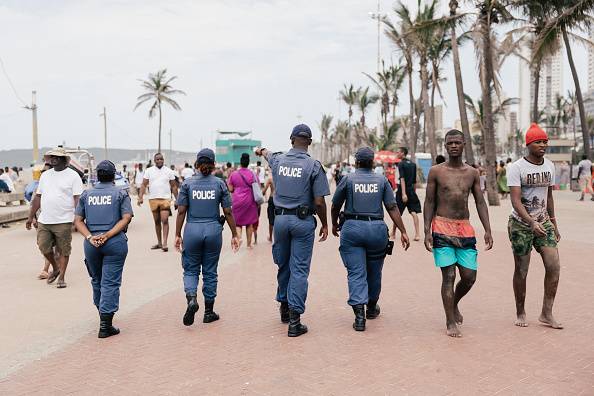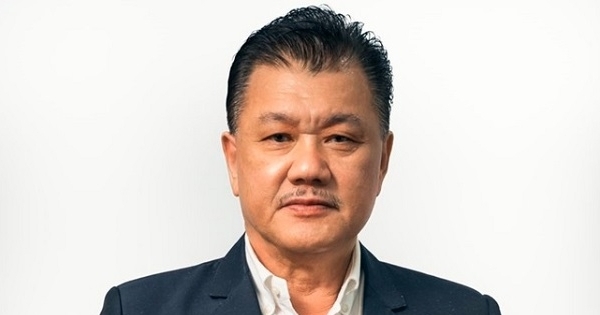‘In the history of Zithulele, we have never, ever said: ‘We’re not going to help you.’ Never, never, never … because all of a sudden that relationship of trust is broken.”
This is how a doctor at Zithulele Hospital, an Eastern Cape facility that has become nationally known for excellence in providing rural healthcare, described one of the policies at the heart of the healthcare centre.
Since the revitalisation of the hospital in the early 2000s, nurses and doctors there have saved thousands of lives. Now, in the 11 months since the arrival of CEO Nolubabalo Fatyela and a series of brisk policy-driven decisions she’s made, patients and hospital staff say that the healthcare at the 147-bed district hospital that serves a population of 130,000 is declining.
“My fear is that they are not going to be able to give me my medication because of this crisis happening here. Things have changed a lot recently; it’s difficult even to get my file. I have been taking ARVs at the hospital and now I feel that my death is around the corner under these conditions,” an elderly patient said.
Acclaimed Zithulele Hospital sadly in danger of losing what made it great while patients are the biggest losers
The patient is one of many who has been affected by the decentralisation of an ARV and TB care unit at Zithulele Hospital, a decision taken by Fatyela in February.
The ARV unit was established in 2007 as a centre for people to access life-saving treatments. In 2009, according to Department of Health requirements that people access care at clinics, doctors at Zithulele began to steadily refer patients to clinics to get medication. By 2015, more than 90% of the thousands of patients in the programme were getting treatment from clinics surrounding Zithulele.

However, the hospital continued to allow patients who were on complicated treatments and uncomplicated patients for whom the hospital was more accessible to keep getting care at the hospital. This contravened the Department of Health’s policy and when Fatyela arrived, she asked the clinical manager, Dr Ben Gaunt, to decentralise patients to clinics. Later, said a doctor, as the CEO and clinical manager’s relationship deteriorated, Fatyela acted without consulting them.
In February, according to doctors at Zithulele, Fatyela unexpectedly brought in an outside doctor and an outside, Cape Town-based NGO, TB HIV Care, to organise sending HIV and TB patients to clinics.
Eastern Cape Health Department transfers CEO and senior doctor in continuing Zithulele Hospital conflict
This was “absolutely detrimental to one of the biggest programmes in our hospital. It was an absolute disaster, where a lot of illegal things were actually done. You know, they literally took files out of the hospital that have now disappeared and people were phoned and not phoned. It has created absolute chaos,” said Dr Suretha Cilliers, a senior doctor who was at Zithulele for 10 years, before resigning in July.
“I’m leaving,” she said, “because despite trying to help and engage the CEO, my hands are cut off.”
Harm to patients
Three doctors said that there were dozens of cases of harm caused to patients by the closure of the hospital’s ARV unit. Most concerning is that: “Patients have been down-referred to the clinics that don’t have medications for these patients. These are complex patients who can’t be managed by a clinic nurse, patients on third-line regimens, patients on drug-resistant TB treatment, little children who have complex treatments,” said a Zithulele doctor, who, like most of the other doctors and staff members interviewed for this report, wished to remain anonymous.
The doctor detailed a case of having to spend hours figuring out what medication a patient with Multidrug-Resistant TB (MDR TB) was on after they were told to stop visiting the hospital and told to go to a clinic instead, without a referral letter. The doctor had to take the patient to the hospital anyway to figure out the medication issue.

“So this is not only a case that’s complex and can kill the patient, and it will kill him if it isn’t managed right. But if he defaults, he is going to infect more people with MDR TB and children are especially vulnerable,” said the doctor.
In recent months, Fatyela has appointed someone to screen patients and turn them away if they lack a referral letter. Department of Health policy stipulates that clinics, not hospitals like Zithulele, need to be patients’ first point of care. However, doctors say that patients were turned away “without them being assessed at all. No vitals.” This too is against policy.
Collateral damage — declining care, victimisation and protests at Zithulele Hospital
Another doctor detailed this erosion of trust. “There is this sense of hopelessness because patients aren’t even coming in any more. Because now they’re spending literally half their monthly income or their entire monthly income to come to the hospital because they used to know at least they will get care here, then they get turned away at the door and have not received any care, have spent all their money and are just worse off for it. So they’re not going to come back again. Because that’s just too much of a risk to take.”
In May 2019, 3,091 people were attended to in Zithulele’s outpatient department. After patients started to be turned away at the gates, this plummeted to 1,033, according to official hospital statistics.
This means that thousands of patients who once received good care at Zithulele now have to try to get care at under-resourced clinics.
Visit Daily Maverick’s home page for more news, analysis and investigations
Members of the hospital’s clinical staff, including senior doctors, have left Zithulele as a “direct consequence of some of Fatyela’s decisions and her treatment of doctors”, a doctor said.
Due to these intense staff shortages, said the doctor: “People have died unnecessarily. Many, many people. Not only is it mortality, but also it’s morbidity. And it’s very difficult to work like that. And so we’ve all been just hanging on and hoping that something will change, something will force [Fatyela] out so that we can start rebuilding.”
But not everyone in the community agrees.
‘False stories’
Zithulele ward councillor Phumelele Methu said: “There is no such that people are now starting to die inside that hospital. We’ve been sitting at meetings every week and there are no statistics of the increased number of deaths in that hospital. Instead, they are spreading false stories and the investigation report made it clear that there is no such.”
Methu was referring to the preliminary findings of the report that were shared at a meeting on 26 July with the MEC.
She continued: “Another thing that you must notice, if it’s true that people are dying while there are doctors there, meaning those doctors are not doing their job, leading to people to die.”
In response to this rhetoric from Methu, a doctor said: “For someone to make an allegation like that is defamatory.” The doctor emphasised that Methu’s claims were entirely baseless.
The doctor said: “It’s breaking down a hospital that has worked really well, to one that is slowly deteriorating.”
Given that Zithulele has historically offered a standard of care that was exceptionally good for a rural hospital in the Eastern Cape, the decline in care is especially worrying.

“Things are quite a lot worse than they were three years ago; they are probably a bit worse than they were six months ago. But if you compare what’s going on at this hospital to many other rural hospitals, we are actually doing really well,” said the doctor.
However: “It feels like there could be a drastic decline if things continue and all the doctors leave.”
Since early July when Fatyela suspended the NGO Jabulani Rural Health Foundation, which was founded by senior doctors at Zithulele, patients at the hospital have lost a host of valuable services.
Jabulani staff worked as Xhosa-English translators for doctors and patients and provided counselling at HIV and depression support groups. The NGO purchased basic supplies like milk and expensive equipment like an ultrasonography machine for Zithulele.
It also provided doctors with accommodation, helping keep staff at Zithulele for longer. Jabulani distributed medication to clinics and ran a patient transportation fund to help patients pay expensive taxi fares. With Jabulani suspended, all of these services have stopped. This is likely to lead to a further deterioration of care.
The chief of the Zithulele area, Nkosi Gcinuvuyo Dudumayo, said: “The internal conflict has caused a division, instability in the community of Zithulele, and my wish is to see this sorted out, coming to an end.”
‘Tell me, if they are removing these ARV sites here, what are we going to do as patients?” asked a 65-year-old Zithulele patient.
“We want this thing to be sorted out immediately. Because now, some of the community members are receiving death threats and on the other side, us as patients, we are in the centre of this battle.”
“A rational government would surely say, ‘Hey look, here is a model of excellence, providing quality healthcare to poor communities through innovative solutions. How can we change policy so that other rural hospitals can become more like that?’ Instead, they say, ‘This hospital has not complied with our policies. We should bring them in line at all costs.’ It’s actually beyond belief,” said a doctor. DM/MC
For more on the conflict at Zithulele Hospital, read Part One and Part Three of this story.
![]()
















%20(2)%20(1).jpg)


Discussion about this post